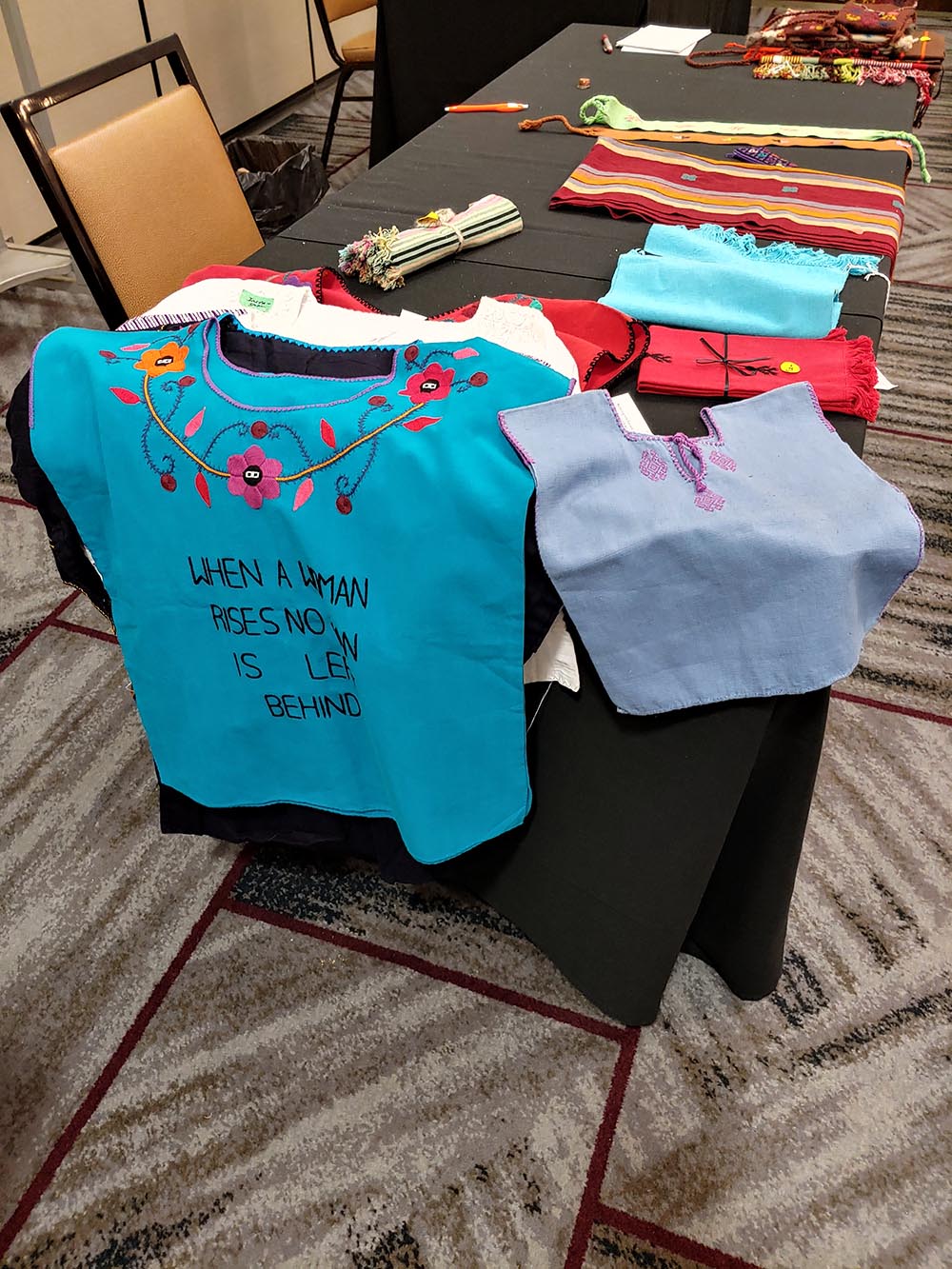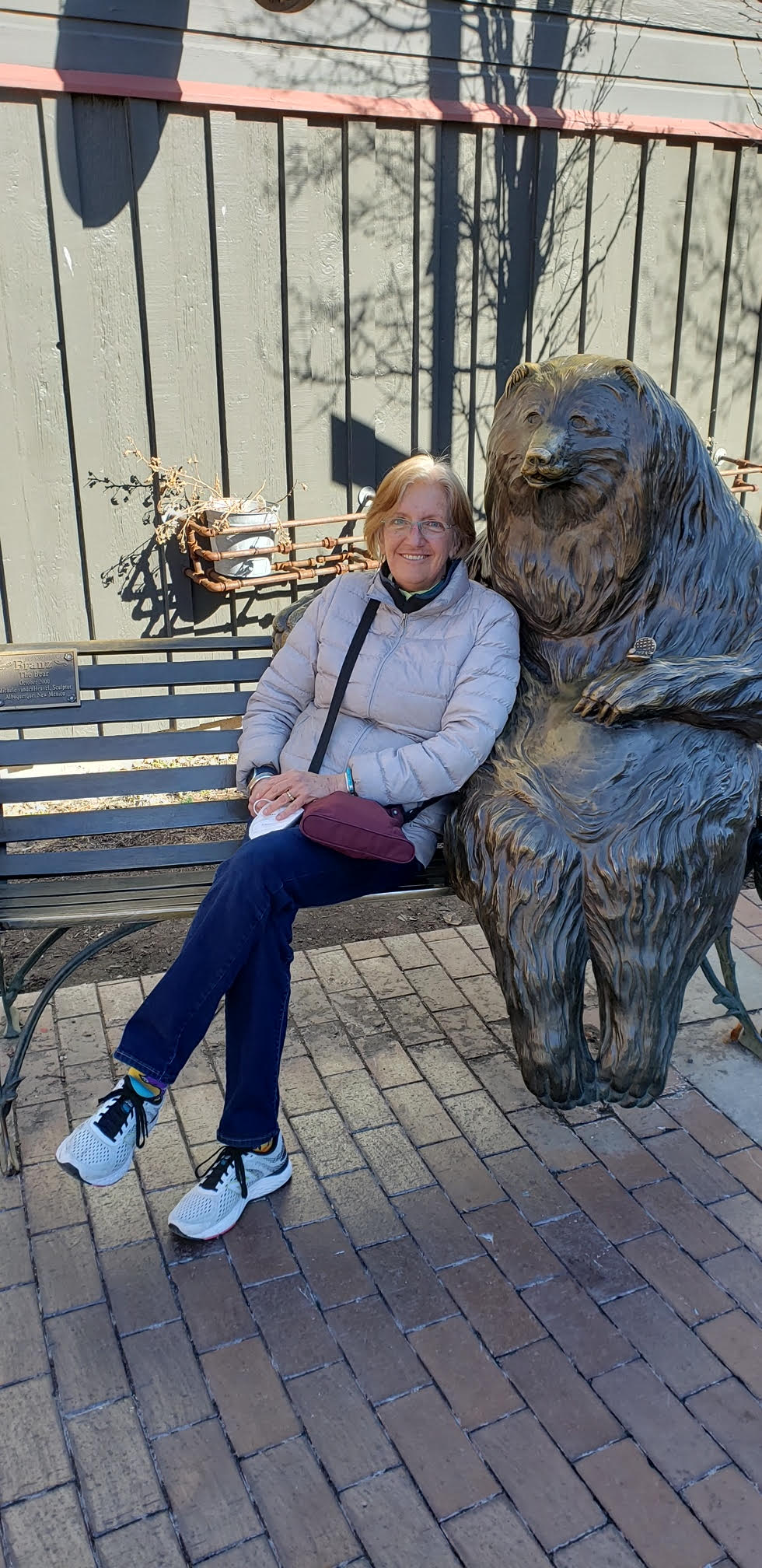An account is required to join the Society, renew annual memberships online, register for the Annual Meeting, and access the journals Practicing Anthropology and Human Organization
- Hello Guest!|Log In | Register
From the Editors
Moving On: From the Salt Lake to the Banks of the Ohio
Jeanne Simonelli and Orit Tamir
 Salt Lake City is an interesting town. Located in the shadow of the Wasatch (sounds like Sasquatch) Mountains, on the edge of the shrinking Great Salt Lake, they do things big. Wide boulevards, massive shopping centers, exceptionally friendly people, large families…all are representative of Utah. The state was destined to be called Deseret, but the federal government wanted Utah. You have to pick your battles.
Salt Lake City is an interesting town. Located in the shadow of the Wasatch (sounds like Sasquatch) Mountains, on the edge of the shrinking Great Salt Lake, they do things big. Wide boulevards, massive shopping centers, exceptionally friendly people, large families…all are representative of Utah. The state was destined to be called Deseret, but the federal government wanted Utah. You have to pick your battles.
Landing at the under-construction Salt Lake City airport, the walk from the gate to baggage claim registered at just under 2 miles. Ground transportation to the hotel was virtually nonexistent. Had I (Jeanne) been going to ski in nearby Park City, it would have been easier, but I grabbed a $30.00 cab for the ten minute ride to the hotel. Friends who took the much less expensive public transport said it took about 2 hours.
To be fair, SfAA couldn’t have ordered better weather for our first in person meeting since the start of Covid. The week before and several after dumped snow, but ours was sunny, warm and tempting. SfAA often picks sites that lure our members from the North Country at the start of Spring. It’s great for attendees but lousy for meeting participation. But this time we were hungry for information, and walks were interspersed with papers.
I don’t want to repeat Michael Paolisso and Jim McDonald’s summaries of the meeting, but have a few things to add. A successful hybrid meeting needs lots of help. For instance, I never realized that the entire system crashed during my presentation, which was a good thing. No info...no panic. But it is clear that hybrid sessions really need all of us to be ready, so that time doesn’t get used up setting up. We need the assistance of young, tech savvy members!
One thing that became clear to me is that I’m getting old. It’s been almost forty years since my first SfAA meeting in San Diego. (Hmmmm… that’s a nice place to meet?) I don’t think there was a computer involved and my Bestie and I shared the same presentation suit. Meetings have changed, technology has changed, and language has changed. It’s somewhat embarrassing to have to ask that the alphabet soup of technological gadgetry be explained. So, for next year, we need someone to write out clear instructions for the older generation.
I’m looking forward to the 2023 Cincinnati meeting. As with Salt Lake, weather could go towards winter or spring, as Cincinnati is in the southern end of Ohio. It’s a river city, close to Kentucky and horses and bourbon, a little bit of Appalachia tacked on to the Northeast. I’m hoping that our good friends from the Chiapas Women’s Weaving co-ops can once again join us. I sold almost $2000.00 worth of textiles in Salt Lake, which is part of the Social Justice mission of SfAA. Every penny goes to the weavers.
Now that you are finished with this meeting, please remember that your 11 page, 15 minute presentation is perfect for Practicing Anthropology. Clean it up, add pictures and send it to editor Lisa Jane Hardy (Lisa.Hardy@nau.edu). Lisa is attached to social media and does a great job editing and advertising pieces.
Finally, a note about Arts and Sciences. Most of us went through a college of Arts and Sciences. Our presentations at the meetings tend to lean toward the science end of the equation. Next year, I’d like to see a little bit more about the Arts. We work with cultures who are artists, including fiber and ceramics and glass and beads and murals. Many of us also have hidden talents. If you’d like to help plan an artistic piece, presentation or session for Cincinnati, let me know. All ideas are welcome. We’ll be “…living on the air in Cincinnati, Cincinnati, WKRP.” (Songwriters: T. Wells, H. Wilson.)


 Attending SfAA meeting in Salt Lake City was a homecoming for me (Orit). Many years ago, I came to the US on a special scholarship for an Israeli student from BYU. I knew little about the LDS church, but was eager to make the best out of a generous offer to study one year in the US. (In fact, when BYU students asked if I was LDS I answered that I was not doing drugs, totally confusing LDS with LSD…). I was not an anthropology major at the time, but I joined an anthropology club while at BYU so that I could go on cool trips to archaeological sites and get to know beautiful Utah. The club was granted permission to take two vans full of students to attend SfAA meeting in San Diego. We camped on Mission Bay in tents, dressed up every morning in our ‘conference’ cloths, brushed off the sand, and went to the conference. The SfAA in San Diego was a watershed event in my life. It was the first time I heard about the Navajo-Hopi land dispute and the massive forced relocation that ensued, an injustice that touched my heart and ended up occupying me for many years to come.
Attending SfAA meeting in Salt Lake City was a homecoming for me (Orit). Many years ago, I came to the US on a special scholarship for an Israeli student from BYU. I knew little about the LDS church, but was eager to make the best out of a generous offer to study one year in the US. (In fact, when BYU students asked if I was LDS I answered that I was not doing drugs, totally confusing LDS with LSD…). I was not an anthropology major at the time, but I joined an anthropology club while at BYU so that I could go on cool trips to archaeological sites and get to know beautiful Utah. The club was granted permission to take two vans full of students to attend SfAA meeting in San Diego. We camped on Mission Bay in tents, dressed up every morning in our ‘conference’ cloths, brushed off the sand, and went to the conference. The SfAA in San Diego was a watershed event in my life. It was the first time I heard about the Navajo-Hopi land dispute and the massive forced relocation that ensued, an injustice that touched my heart and ended up occupying me for many years to come.
Fast forward, after graduating with a double BA in Eretz Israel Studies and Art History from the University of Haifa (Israel), I returned to the US and to the Southwest to pursue graduate degrees in anthropology. I started in BYU on another generous scholarship, but transferred to Arizona State. I wrote both my MA thesis and Ph.D. dissertation on the Navajo-Hopi land dispute. I chose to stay in the Southwest in order to be close to the Dinè (Navajo) people I have worked with and, let’s face it, without whom I would not had a career. I also wanted to be close to the Beck family (Dinè) members who have treated me as one of their own. Fast forward (again), this is going to be my last semester as a university professor. It is therefore fitting that I conclude my academic career (not to be confused with being an applied anthropologist) at the place it begun for me: Utah. The added bonus is that an especially close member of my Dinè family, Nanibaa Beck , will also be my last MA student: she will graduate next month.
What goes around, comes around, and around.

Cart
Search